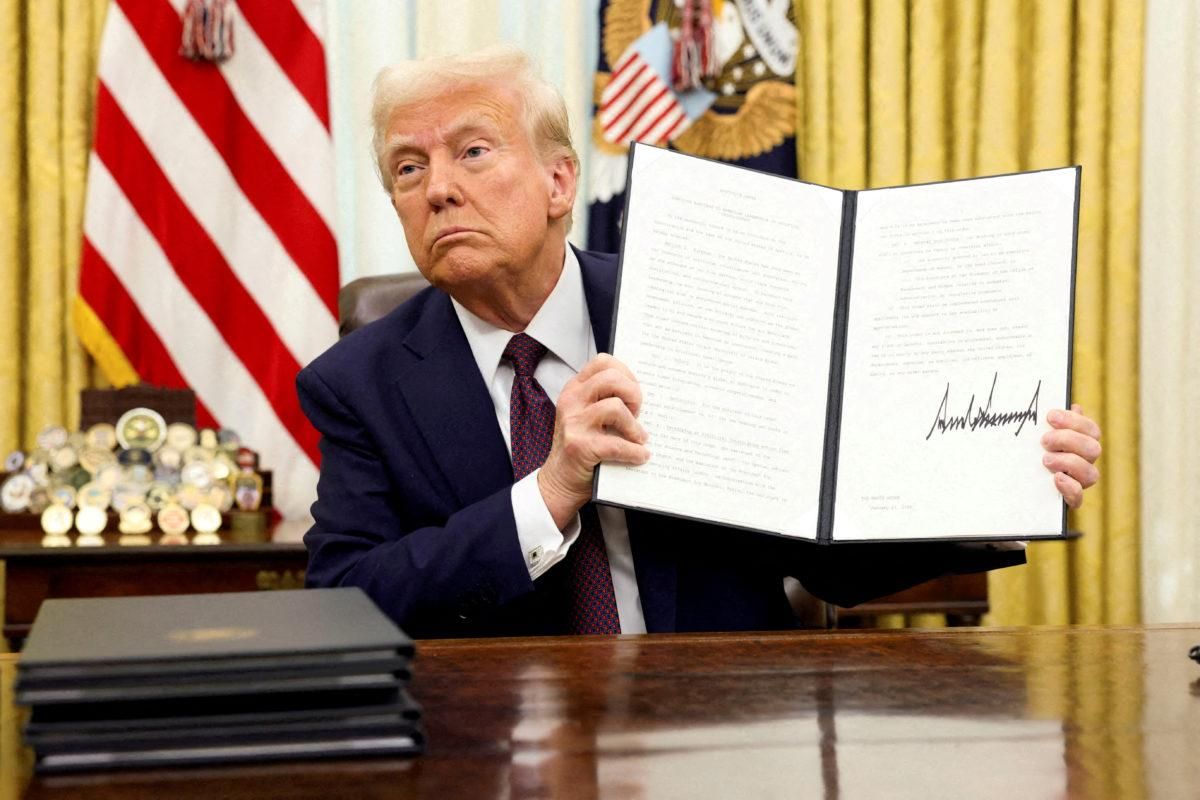President Donald Trump declared a new set of tariffs April 2, marking the beginning of what he called “reciprocal” trade policies aimed at addressing what he described as years of unfair trade practices by other nations. The new tariffs, which are expected to raise hundreds of billions in revenue, come as part of Trump's broader strategy to boost domestic manufacturing and curb the $1.2 trillion U.S. trade deficit.
Trump's announcement focused on a 10% baseline tax on all imports, alongside steeper tariffs on nations with trade surpluses with the U.S. Among the hardest-hit countries are China, which will face a 34% tax on its imports, the European Union at 20%, South Korea at 25%, Japan at 24%, and Taiwan at 32%.
During his remarks at the White House, Trump used stark language to characterize the global trade system, stating, “Our country has been looted, pillaged, raped, plundered” by trading partners. The new tariffs are part of an economic strategy intended to bring manufacturing jobs back to U.S. soil, though critics warn that these measures could lead to higher consumer prices and potential economic slowdowns.
The tariffs are set to take effect immediately, with White House press secretary Karoline Leavitt calling April 2 “one of the most important days in modern American history.” The move comes without Congressional approval, as Trump uses his powers under the 1977 International Emergency Powers Act to impose the taxes unilaterally.
“This is not going to happen anymore,” Trump said, referring to what he sees as unfair trade practices that have hurt American workers.
However, the announcement has not been without controversy. Economists warn that the tariffs could slow economic growth, with the Budget Lab at Yale University estimating a universal 20% tariff could cost American households an additional $3,400 to $4,200 annually.
White House trade adviser Peter Navarro suggested the tariffs would raise up to $600 billion a year, positioning this as the largest tax increase since World War II. However, some economists and policymakers argue that past tariffs have failed to deliver the manufacturing renaissance Trump promised.
The administration remains confident in its approach, despite opposition from both Democratic and some Republican lawmakers. "The president shouldn’t be able to do that," Rep. Suzan DelBene, D-WA, stated, criticizing Trump for bypassing Congress, according the Associated Press. "This is a massive tax increase on American families."
Internationally, many of the U.S.'s long-standing allies have expressed concern about the potential for retaliatory tariffs. The European Union has already imposed its own tariffs in response to previous U.S. measures, and Italy's Prime Minister Giorgia Meloni cautioned a trade war would harm both the U.S. and EU economies.
With uncertainty surrounding the specifics of these tariffs, businesses, particularly those that rely on cross-border trade, are grappling with the unknown.











